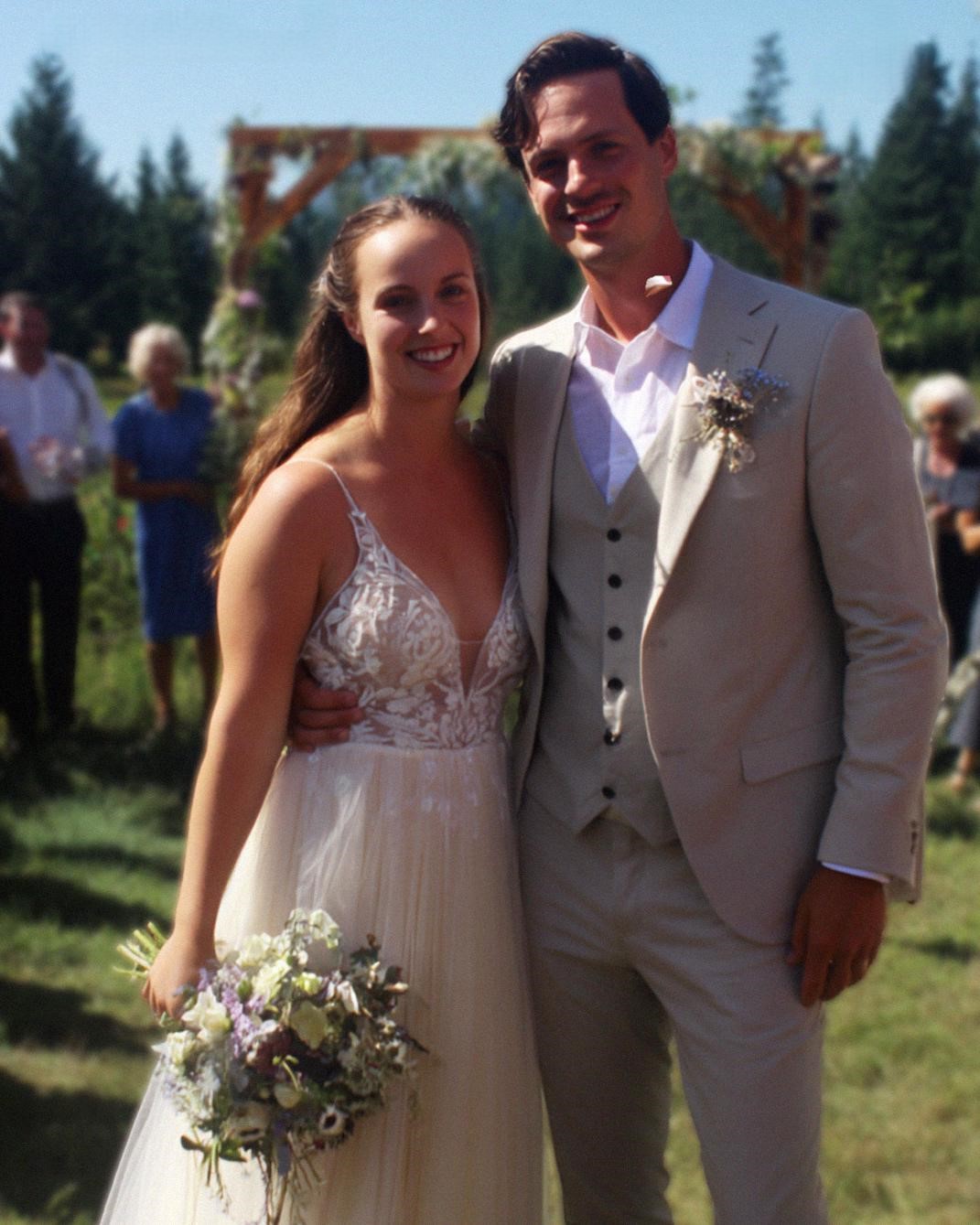Family can sometimes be the harshest reminder that love and loyalty aren’t guaranteed. My older sister, Emily, proved that in the cruelest way when she announced her wedding plans without consulting me, blindsiding me and almost sabotaging the business I had built from nothing. What she didn’t anticipate was that karma would arrive at her party and deliver the reckoning I couldn’t.
I grew up in a fractured household. From my teenage years, I knew my place was somewhere beneath “afterthought.” At fourteen, my mother sat me at the kitchen table and, without a shred of tenderness, said, “Your grandparents need help. You’re going to live with them for a while.” That “while” turned into forever. It wasn’t necessity—it was inconvenience. Emily stayed home, basking in attention and family life, while I was sent away like unwanted baggage.
Yet the mountains became my sanctuary. My grandparents’ home, far from punishment, was a world of its own. Rolling acres, a stable filled with horses, and a house straight from a storybook. Grandpa taught me hard work, repairing fences and tending the land. Grandma taught me wisdom I still carry: “People will try to make you feel small. Don’t let them succeed.”
When my grandparents passed away four years ago, their will divided cash and investments among my mother, Emily, and my brother—well over a million dollars each. But the property? They left it to me. “We leave the mountain estate to our granddaughter Claire, who will cherish and care for it as we always have,” the lawyer read aloud. Emily scoffed. “What’s she going to do with it? She’s just a kid.”
At 21, I knew exactly what I would do. With grit, savings, and a small business loan, I turned the estate into a wedding venue. The first year brought just six bookings, and I worked every role imaginable. By the third year, the venue was fully booked eight months in advance. At 25, I ran a thriving business honoring my grandparents’ memory—and Emily never got over it.
Emily got engaged last year to Brandon, a man who seemed decent but didn’t grasp our family dynamics. From the moment she flaunted her engagement ring, she declared, “Of course, we’ll get married at the family property. It’s tradition.” I remained calm. “That’s fine, Emily, but I need the date. I have to block it on my calendar.” She brushed me off: “I’ll tell you when I’m ready.”
Months passed. I asked repeatedly—texts, calls, even during Christmas dinner. “Emily, I need the date. My calendar is filling fast.” She dismissed me. “You’re being uptight. It’s family. Don’t treat me like one of your clients.” Then, eighteen months later, the invitation arrived. September 14. My heart sank. The Morrisons’ wedding was already booked that day, deposit and signed contract over a year old.
I called Emily. “You never gave me your date. September 14 is already booked.” She erupted: “ARE YOU SERIOUS? CANCEL THEM! THIS IS FAMILY PROPERTY!” I stayed firm: “No, Emily. My business runs on contracts. They reserved it properly.” She spat venom: “This is why Mom sent you away. You’re selfish, choosing strangers over family.”
Harassment followed—calls from relatives, fake online reviews—but I stood my ground. I offered alternative dates, ignored. On September 14, the Morrisons prepared for their wedding. Emily arrived in a bridal-like gown, screaming: “WHY ARE STRANGERS HERE? THIS IS MY WEDDING!” I blocked her. “Emily, leave now before I call the police.” Vendors froze. Guests whispered. My staff escorted her to her SUV. Police were en route.
Emily filed a court complaint, but it collapsed instantly. The will, property deed, and business records spoke for themselves. She even paid my legal fees. Before the truth emerged, she plastered social media with her version, painting herself as the wronged bride. Once news outlets reported the real story—“Entitled Bride Demands Venue She Doesn’t Own”—public opinion flipped. Her “dream wedding” ended in a generic hotel ballroom.
Meanwhile, my business thrived. Praise poured in for professionalism under fire. Jessica, the bride, left a glowing review: “Our day was perfect. Claire handled a family meltdown with grace and protected us completely.” Emily lost credibility, friends, and thousands in legal fees. Karma had done its work.
Now, I walk the estate with pride. Laughter and love echo in the valley where my grandparents planted roses. Emily tried to diminish me, but she failed. Every wedding I host proves my grandparents’ faith in me was well placed. I turned a mountain estate into a legacy of resilience, love, and justice—where family may falter, but integrity and hard work endure.
